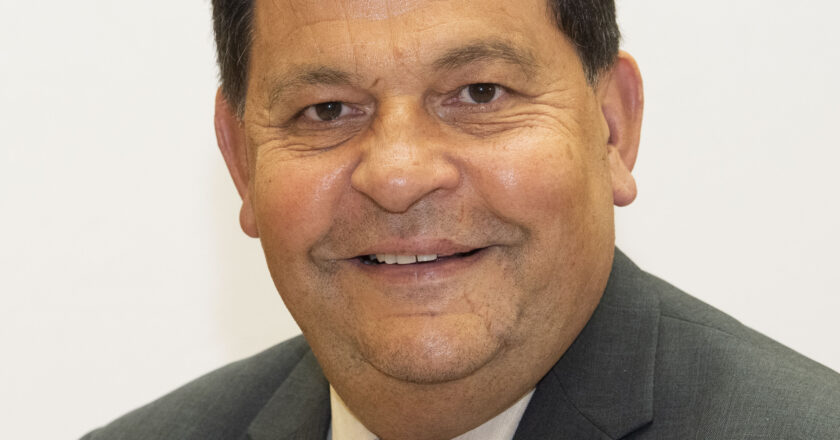A pioneering Nottinghamshire business centre is going from strength to strength as the post-pandemic economic recovery in the county continues to gather pace. For little more than a few months after the country fully re-opened for business following the easing of lockdown measures, it’s full steam ahead at Worksop Turbine where it currently boasts an impressive 97 per cent occupancy rate and has a waiting list for office space.

Based at the Shireoaks Triangle Business Park on the outskirts of Worksop, The Turbine has been home to some of the area’s creative and entrepreneurial talent since April 2006. It is a purpose-built, Nottinghamshire County Council-serviced business and innovation centre which is managed by Claire Gregory together with assistant centre manager Adele Davies and centre support assistants Katy Sanderson and Fran Thornton.
Claire joined The Turbine eight years ago as a part-time receptionist and enjoyed a meteoric rise through the ranks before being appointed manager in 2016. Adele started as a receptionist in July 2017 and her development, overseen by Claire, led to her being appointed assistant manager two years later. The Turbine is an innovation centre designed to help entrepreneurs ‘grow into their own and make a business for themselves’.
It offers firms, especially fledgling start-up businesses, a range of services to flourish and establish themselves with a helping hand from Claire and her team. Claire said: “We offer a virtual floor to get them off the ground and to give them a professional image for their business, once they are more established they are encouraged to grow into the centre as their company thrives.” The Turbine boasts 59 offices and workshops ranging in a variety of different sizes to cater for the needs of individual companies – some of whom have been at the centre since it first opened. It is home to a diverse range of sectors, all of whom complement and collaborate with one another.
One of the businesses which has thrived since it moved into The Turbine a decade ago is the Ortus Group, a successful technology company that provides industry-leading medical and telematics solutions to the emergency services and other specialist industries across the UK. It began life at the centre with a single office but today occupies multiple offices reconfigured to include engineering rooms, a warehouse, photography studio and general office space – all of which are required to operate successfully to serve various NHS trusts and other critical sectors throughout the UK.
However, the company’s chief executive Craig Hall says it was during the Covid-19 pandemic that the support of The Turbine proved crucial.
At the height of the crisis, the Ortus Group continued with its vital work servicing and delivering defibrillators to ambulance services on the frontline – while it also answered the Government’s call to provide ventilators.
Craig said: “The Turbine has remained flexible with our requirements throughout the pandemic.
“When most of the UK was informed to work from home, we had to continue our vital operations servicing defibrillators and procuring additional ventilators, and having access to our offices and workshops was imperative to be able to service the need for the critical situation everyone faced.

“We established a dedicated number of staff who needed to be in our engineering department to service and dispatch the medical equipment. We were able to access our office space at all hours and adapt the environment to meet Government guidelines to ensure we were operating safely. “Our staff and The Turbine really pulled together, it was a great team effort from all involved and I am immensely proud of the role our business has played throughout these challenging times.” However, The Turbine experienced a significant drop in occupancy rates shortly after the country was plunged into lockdown in the spring of 2020 – falling from 93.6 per cent at the beginning of the pandemic to 70.6 per cent shortly afterwards.
Claire said: “Over an eight-week period, 12 businesses handed in their notice, we dropped around 26 per cent in occupancy – (which equates to) around £8,500 in revenue per month. “It was just sheer panic at first because nobody knew what to say, nobody knew what to do. We were in limbo. “Using our experience and knowledge as a team, we put things into place that meant we could continue offering the services required and as restrictions eased we managed to safely welcome back all of our customers.
“I have a huge passion for the centre and our customers and knowing that we needed to remain open for those critical businesses was the most important thing, our business community had been rocked and were experiencing individual pressures so the help and support was more crucial than ever. “Safe to say, it was a challenge we certainly learned a lot from and from a personal aspect it was quite scary not knowing what was going to happen.” The centre has been unable to hold its usual networking events during the pandemic but it’s fair to say with an occupancy rate of 97 per cent, the future is once again looking brighter.
It has also recently benefitted from a significant cash injection to install the latest digital connectivity, which Claire says has been ‘long overdue’. She said: “It has now given us full access around the centre for new connectivity in terms of WiFi, improved customer internet and a VOIP (telephone) system which is the way these kind of places need to be now, as things are always moving forward.”

But how has the centre successfully attracted new occupants?
“The service we offer, and I might be biased, is second to none,” said Claire.
“We’ve built a reputation on the quality of service that we provide.
“We’ve got a good social media following, we’ve got a good marketing network, we’ve got a good reputation and we’ve got companies from within the centre that didn’t want to work from home coming out of Covid so expanded themselves – freeing up smaller space for people who needed a small office and couldn’t work at home. “So, the moving around of companies that wanted to remain here but needed more space provided that little bit of extra room for other people to then step into us.
“I’m also a massive advocate of word of mouth and it’s recommendation from people, who know who we are and what we offer, that aids our success. “Every day is a new day and every day is different at The Turbine, it always has been, and I am almost certain it always will be!”
For more information about The Turbine and how it could support you or your business, visit https://worksopturbine.nottinghamshire.gov.uk.













